This article was co-authored by Rebecca Tenzer, MAT, MA, LCSW, CCTP, CGCS, CCATP, CCFP and by wikiHow staff writer, Hannah Madden. Rebecca Tenzer is the owner and head clinician at Astute Counseling Services, a private counseling practice in Chicago, Illinois. With over 18 years of clinical and educational experience in the field of mental health, Rebecca specializes in the treatment of depression, anxiety, panic, trauma, grief, interpersonal relationships using a combination of Cognitive Behavioral therapy, Psychodynamic therapy, and other evidence-based practices. Rebecca holds a Bachelor of Arts (BA) in Sociology and Anthropology from DePauw University, a Master in Teaching (MAT) from Dominican University, and a Master of Social Work (MSW) from the University of Chicago. Rebecca has served as a member of the AmeriCorps and is also a Professor of Psychology at the collegiate level. Rebecca is trained as a Cognitive Behavioral Therapist (CBT), a Certified Clinical Trauma Professional (CCTP), a Certified Grief Counseling Specialist (CGCS), a Clinical Anxiety Treatment Professional (CCATP), and a Certified Compassion Fatigue Professional (CCFP). Rebecca is also a member of the Cognitive Behavioral Therapy Society of America and The National Association of Social Workers.
There are 10 references cited in this article, which can be found at the bottom of the page.
This article has been viewed 105,175 times.
If you and your partner have been trying to get pregnant without any luck, there is a chance that one or both of you may be infertile. While it can be a worrying thought, there are many ways you can have a child, even if you or your partner have trouble conceiving. Keep reading to learn more about the warning signs of infertility and when you should go see a doctor for testing.
Steps
Expert Q&A
-
QuestionWhen should you seek help for infertility?
 Rebecca Tenzer, MAT, MA, LCSW, CCTP, CGCS, CCATP, CCFPRebecca Tenzer is the owner and head clinician at Astute Counseling Services, a private counseling practice in Chicago, Illinois. With over 18 years of clinical and educational experience in the field of mental health, Rebecca specializes in the treatment of depression, anxiety, panic, trauma, grief, interpersonal relationships using a combination of Cognitive Behavioral therapy, Psychodynamic therapy, and other evidence-based practices. Rebecca holds a Bachelor of Arts (BA) in Sociology and Anthropology from DePauw University, a Master in Teaching (MAT) from Dominican University, and a Master of Social Work (MSW) from the University of Chicago. Rebecca has served as a member of the AmeriCorps and is also a Professor of Psychology at the collegiate level. Rebecca is trained as a Cognitive Behavioral Therapist (CBT), a Certified Clinical Trauma Professional (CCTP), a Certified Grief Counseling Specialist (CGCS), a Clinical Anxiety Treatment Professional (CCATP), and a Certified Compassion Fatigue Professional (CCFP). Rebecca is also a member of the Cognitive Behavioral Therapy Society of America and The National Association of Social Workers.
Rebecca Tenzer, MAT, MA, LCSW, CCTP, CGCS, CCATP, CCFPRebecca Tenzer is the owner and head clinician at Astute Counseling Services, a private counseling practice in Chicago, Illinois. With over 18 years of clinical and educational experience in the field of mental health, Rebecca specializes in the treatment of depression, anxiety, panic, trauma, grief, interpersonal relationships using a combination of Cognitive Behavioral therapy, Psychodynamic therapy, and other evidence-based practices. Rebecca holds a Bachelor of Arts (BA) in Sociology and Anthropology from DePauw University, a Master in Teaching (MAT) from Dominican University, and a Master of Social Work (MSW) from the University of Chicago. Rebecca has served as a member of the AmeriCorps and is also a Professor of Psychology at the collegiate level. Rebecca is trained as a Cognitive Behavioral Therapist (CBT), a Certified Clinical Trauma Professional (CCTP), a Certified Grief Counseling Specialist (CGCS), a Clinical Anxiety Treatment Professional (CCATP), and a Certified Compassion Fatigue Professional (CCFP). Rebecca is also a member of the Cognitive Behavioral Therapy Society of America and The National Association of Social Workers.
Clinical Therapist & Adjunct Professor Clinical Therapist & Adjunct ProfessorExpert AnswerIn regards to mental health, you might want to seek help when infertility begins affecting aspects of your relationship with your partner. With psychotherapy, clinicians analyze the information they glean to interpret meanings of a client's behaviors, beliefs, thoughts, and emotions, and to address and develop coping skills. Clinicians pull from all aspects of a client's life, past, present, and future, when using psychotherapy techniques.
Clinical Therapist & Adjunct ProfessorExpert AnswerIn regards to mental health, you might want to seek help when infertility begins affecting aspects of your relationship with your partner. With psychotherapy, clinicians analyze the information they glean to interpret meanings of a client's behaviors, beliefs, thoughts, and emotions, and to address and develop coping skills. Clinicians pull from all aspects of a client's life, past, present, and future, when using psychotherapy techniques.
References
- ↑ https://www.plannedparenthood.org/learn/pregnancy/infertility/should-my-partner-and-i-get-tested-infertility
- ↑ https://www.tommys.org/pregnancy-information/im-pregnant/ask-a-midwife/what-happens-if-im-pregnant-over-age-40
- ↑ https://www.nhs.uk/conditions/infertility/diagnosis/
- ↑ https://www.uchicagomedicine.org/forefront/womens-health-articles/signs-of-infertility-symptoms-causes-first-steps
- ↑ https://my.clevelandclinic.org/health/diseases/10035-erectile-dysfunction#management-and-treatment
- ↑ https://my.clevelandclinic.org/health/diseases/16083-infertility-causes#symptoms-and-causes
- ↑ https://www.nhs.uk/conditions/infertility/causes/
- ↑ https://my.clevelandclinic.org/health/diseases/17774-female-infertility#symptoms-and-causes
- ↑ https://www.nichd.nih.gov/health/topics/infertility/conditioninfo/causes/causes-female
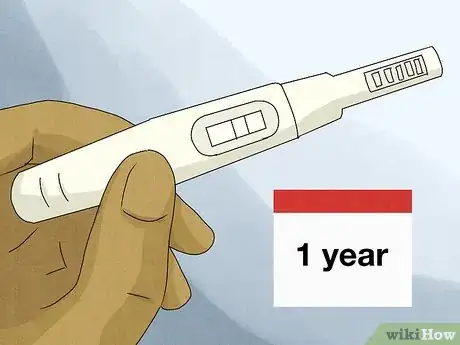





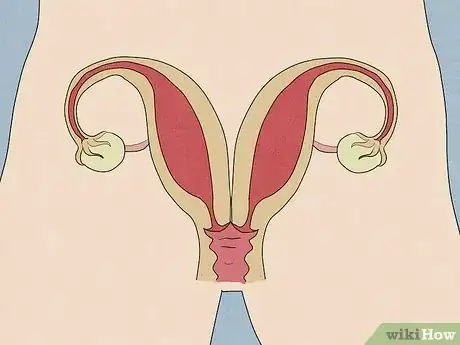
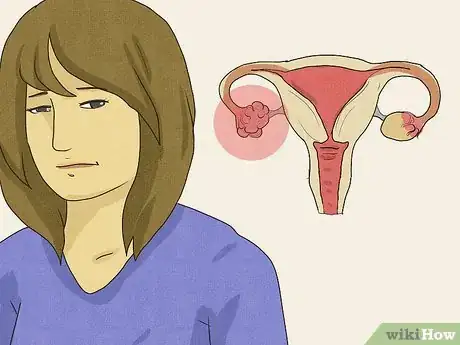


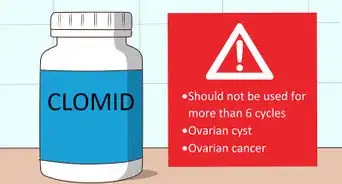








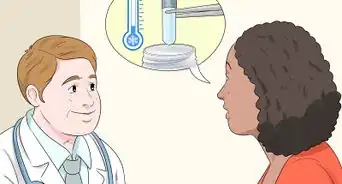














































Medical Disclaimer
The content of this article is not intended to be a substitute for professional medical advice, examination, diagnosis, or treatment. You should always contact your doctor or other qualified healthcare professional before starting, changing, or stopping any kind of health treatment.
Read More...